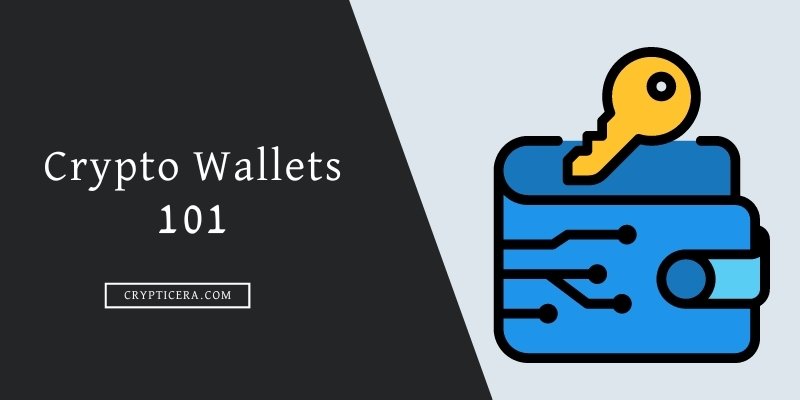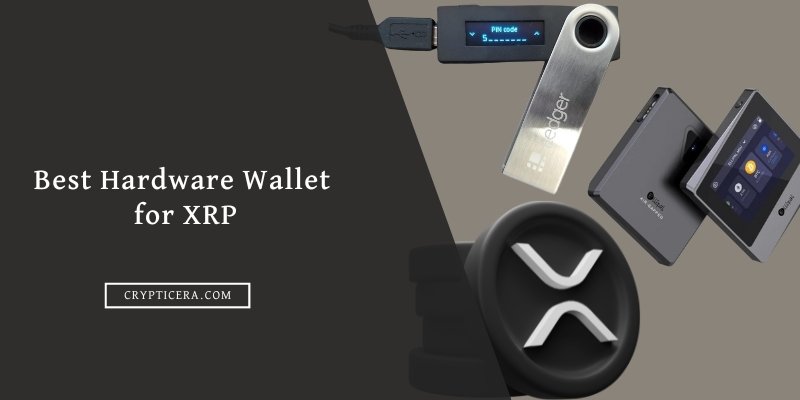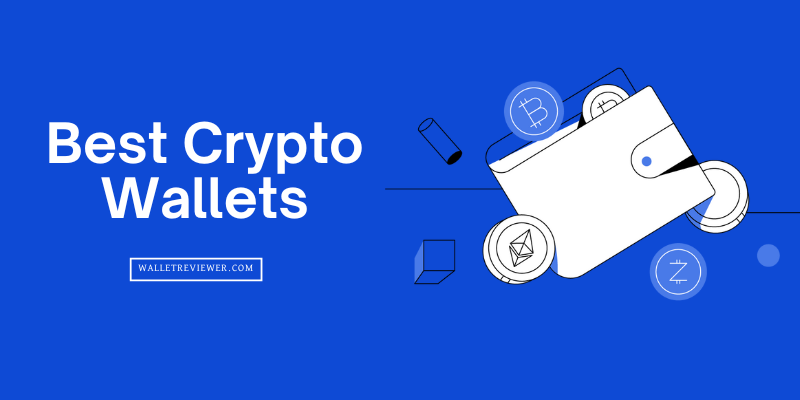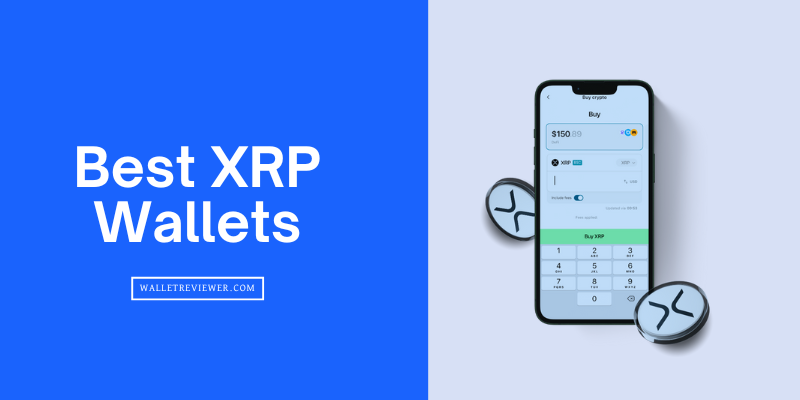Cryptocurrency has become a buzzword in the world of finance. And with its rising popularity, the need for a reliable and secure way to store and manage these digital assets has also emerged.
Cryptocurrencies, such as Bitcoin and Ethereum, are a form of digital currency that operates on a decentralized network called a blockchain. Unlike traditional currency, which is managed by centralized financial institutions, cryptocurrencies are decentralized and rely on cryptography for security.
This is where a crypto wallet comes into the picture. In this article, we will delve into the concept of crypto wallets, their types, how they work, popular options, best practices, misconceptions, and the future of these digital wallets.
What is a Cryptocurrency Wallet?
A crypto wallet, also known as a digital wallet, is a software program or a hardware device that allows users to store, manage, and transact their cryptocurrencies.
It securely stores the user’s public and private keys, essential for conducting transactions in the cryptocurrency network.
The public key serves as the user’s address, while the private key is used to sign transactions and prove ownership of the assets.
Types of Crypto Wallets
There are several types of crypto wallets available in the market, each with its own advantages and disadvantages. Let’s take a look at some of the most common types:
1. Hardware wallets
Hardware wallets are physical devices that store the user’s private keys offline, providing an extra layer of security.
They are usually in the form of USB devices and are not connected to the internet, which makes them immune to online threats such as hacking and malware attacks.
Some popular hardware wallet options include Ledger Nano X and Trezor.
2. Software wallets
Software wallets are applications or software programs that can be installed on desktop computers or mobile devices. They provide users with the ability to manage their cryptocurrencies and conduct transactions.
Software wallets can be further classified into different types:
- Desktop wallets: They are installed on a user’s desktop or laptop computer and provide full control over the private keys. Examples of desktop wallets include Atomic Wallet and Exodus.
- Mobile wallets: These apps can be installed on mobile devices, providing convenience and portability. Examples of mobile wallets include Trust Wallet and ZenGo.
- Web wallets: Online wallets can be accessed through a web browser. They are easy to use but less secure than hardware and software wallets as they are susceptible to online threats. Examples of web wallets include the Metamask browser extension and MyEtherWallet.
3. Paper wallets
Paper wallets are physical printouts or written copies of the user’s public and private keys. They are usually stored offline and provide a high level of security as they are not connected to the internet.
However, they require extra precautions to ensure their safekeeping and are not as user-friendly as other types of wallets.
How Crypto Wallets Work
Crypto wallets use a combination of public and private keys to enable transactions in the cryptocurrency network.
The public key, also known as the wallet address, is used to receive funds from other users, while the private key is used to sign transactions and authorize the transfer of funds from the wallet.
When a user initiates a transaction, it is signed with their private key, which serves as a digital signature. The transaction is then broadcasted to the cryptocurrency network and verified by miners or nodes.
Once the transaction is confirmed, the funds are transferred from the sender’s wallet to the receiver’s wallet.
NOTE: It’s important to note that crypto wallets do not actually store the cryptocurrencies themselves, but rather store the private keys.
Importance of Security in Crypto Wallets
As cryptocurrencies are decentralized and irreversible, ensuring the security of crypto wallets is of paramount importance. Here are some best practices for securing crypto wallets:
- Use strong and unique passwords: Choose a strong password for your wallet and avoid using the same password across multiple accounts. Use a combination of uppercase and lowercase letters, numbers, and special characters to create a strong password.
- Enable two-factor authentication (2FA): Two-factor authentication adds an extra layer of security to your wallet by requiring a second verification method, such as a fingerprint or a text message code, and your password.
- Keep software up to date: Regularly update your wallet software to the latest version as it often includes important security patches and bug fixes.
- Keep private keys offline: If you’re using a hardware or paper wallet, keep your private keys offline and secure in a safe place to prevent unauthorized access.
- Be cautious of phishing attacks: Be wary of emails, messages, or websites that ask for your wallet information or private keys. Always double-check the authenticity of the source before providing any sensitive information.
Choosing the Right Crypto Wallet
Choosing the right crypto wallet is crucial to ensure the security and convenience of managing cryptocurrencies.
Some factors to consider when choosing the best crypto wallet include:
- Security: The security features of the wallet, such as encryption, multi-factor authentication, and backup options, should be robust to protect the private keys and prevent unauthorized access.
- Type of Wallet: The type of wallet, such as hardware, software, or paper wallet, should align with the user’s preferences and requirements for security, accessibility, and ease of use.
- Supported Cryptocurrencies: Different wallets support different cryptocurrencies, so users should choose a wallet that supports the cryptocurrencies they intend to store and manage.
- User Interface and Ease of Use: The user interface and ease of use of the wallet should be intuitive and user-friendly, enabling easy navigation and management of cryptocurrencies.
- Reputation and Trustworthiness: The reputation and trustworthiness of the wallet provider are crucial in ensuring the safety of cryptocurrencies. Users should choose wallets from reputable and trusted sources to minimize the risk of scams or fraud.
5 Popular Cryptocurrency Wallets for secure storage
We Recommend: Best Software Wallets
Choose Security over Convenience

Best 3FA Non-custodial wallet
- No seed phrase vulnerability, powered by MPC
- A guaranteed wallet recovery model
- Built-in
Web3 firewall

Best Custodial wallet (100% Solvent)
- 800+ coins and tokens
- Copy trading and bots
- Automatic Trading Strategies
- Staking APY up to 130%
1. Ledger Nano X
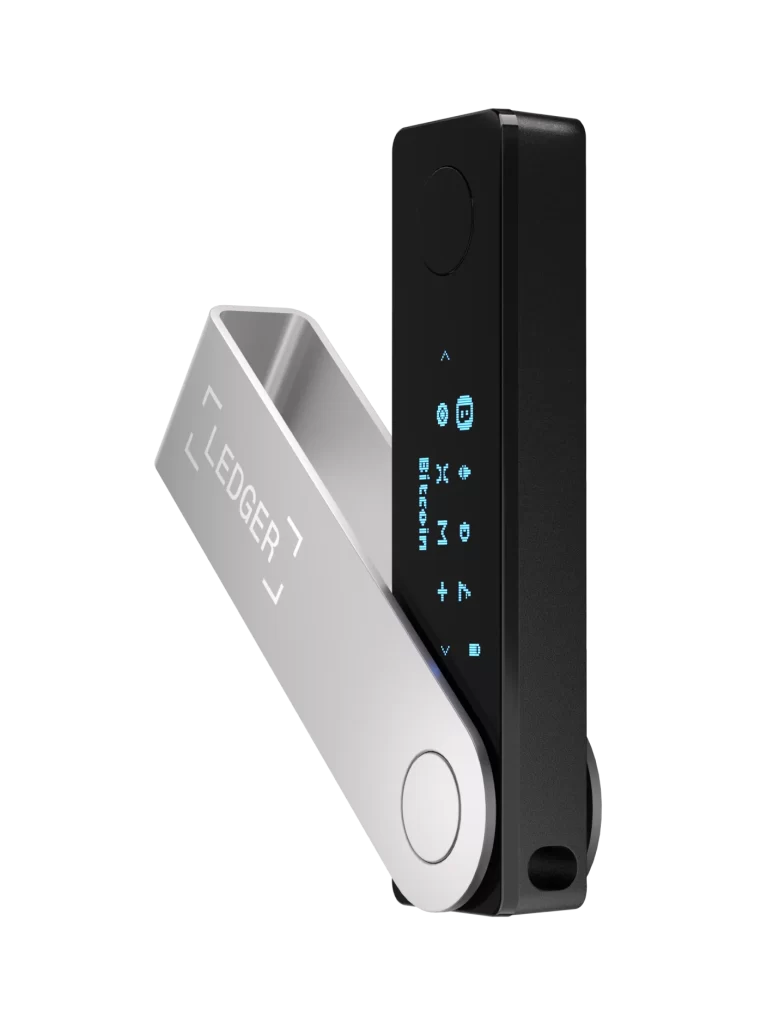
The Ledger Nano X is a hardware wallet that stores your cryptocurrencies offline. It is the most secure type of wallet as it is not connected to the internet.
The Ledger Nano X supports over 5,500 cryptocurrencies and has Bluetooth connectivity, allowing you to connect it to your smartphone.
The LedgerLive app is easy to use and has a user-friendly interface. it can also be used to store NFTs and interact with DApps for lending, borrowing, Staking, yield farming, etc.
2. Exodus Wallet
The Exodus wallet is a popular software-based cryptocurrency wallet. It supports 260+ cryptocurrencies, including Bitcoin, Ethereum, Litecoin, and many other ERC-20 tokens.
The wallet displays the user’s portfolio in a visually appealing manner, providing a clear overview of their holdings.
Exodus wallet also includes a built-in exchange feature that allows users to exchange cryptocurrencies directly within the wallet. This eliminates the need for users to transfer their cryptocurrencies to an external exchange, saving time and effort.
3. Metamask

MetaMask is a popular Ether blockchain wallet that is specifically designed for use with the Ethereum blockchain. It is a browser extension wallet that allows users to manage their Ethereum-based digital assets, including Ether (ETH) and ERC20 tokens.
You can also use other blockchains by importing their contract address. It provides seamless integration with popular DApps.
This allows users to easily manage their transactions, sign messages, and interact with smart contracts directly from the wallet interface.
4. SafePal [Hot + Cold Wallet]
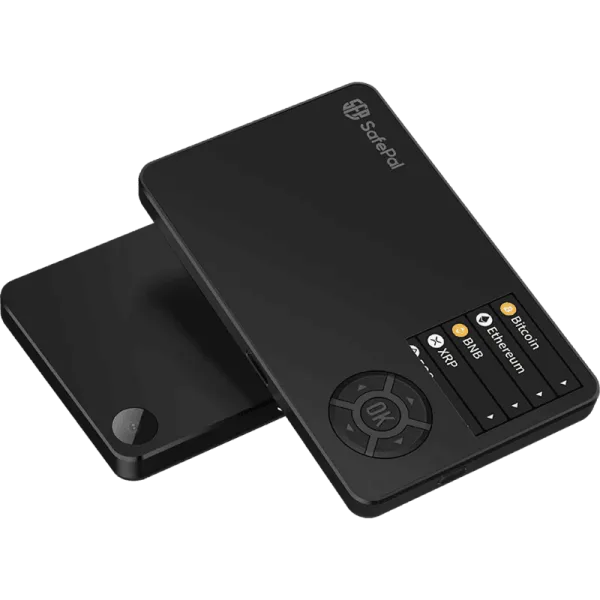
SafePal is a popular cryptocurrency wallet that offers both hardware and software options for managing digital assets.
The Cold wallet is equipped with a secure element chip and supports 10,000+ tokens on 54+ blockchains.
The Hot Wallet provides robust security features, including encryption of private keys, PIN code protection, and biometric authentication options, making it safe to use.
5. Trezor Model One
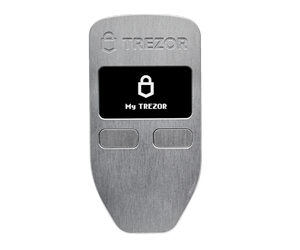
Trezor Model One stores users’ private keys offline, also known as cold storage wallet. The device also supports various ERC-20 tokens, which are widely used in decentralized finance (DeFi) applications.
The secure element chip is a tamper-proof hardware component that stores and manages private keys securely, making it resistant to physical and software attacks.
Setting Up a Crypto Wallet
Setting up a crypto wallet may vary depending on the type of wallet chosen, but generally, the steps involved:
- Researching and choosing a reliable wallet provider based on the factors mentioned earlier.
- Downloading and installing the wallet software or connecting and setting up the hardware wallet as per the manufacturer’s instructions.
- Creating a new wallet or importing an existing wallet by generating a new set of public and private keys.
- Backing up the private keys securely and following the wallet provider’s recommended security measures, such as setting up multi-factor authentication and using strong passwords.
- Testing the wallet by sending and receiving a small amount of cryptocurrency to ensure its functionality.
Managing Your Crypto Wallet
Once the crypto wallet is set up, it is essential to follow best practices for managing it securely. Some best practices include:
- Regularly updating the wallet software and ensuring it is from a trusted source to protect against vulnerabilities.
- Keeping the private keys secure and not sharing them with anyone.
- Enabling multi-factor authentication for an extra layer of security.
- Avoiding using public or shared devices for accessing the wallet.
- Being cautious of phishing attempts and scams, and not clicking on suspicious links or providing private key information to unknown sources.
- Keeping a backup of the private keys in a secure offline location to prevent loss of access in case of hardware failure or damage.
Hot Wallets vs Cold Wallets
| Key Points | Hot Wallets | Cold Wallets |
|---|---|---|
| Security | Less secure | More secure |
| Connectivity | Online | Offline |
| Accessibility | Convenient | Less convenient |
| Private Keys | Held within device | Held by user |
| Protection from Hacks | Vulnerable to hacks | Less vulnerable to hacks |
| Protection from Loss | Risk of loss | Lower risk of loss |
| Usage | Small transactions | Long-term storage |
| Examples | Software wallets like Atomic wallet | Hardware wallets like Ledger, ELLIPAL etc. |
| Cost | Generally free | One-time cost |
Custodial vs Non-Custodial Wallets
| Feature | Custodial Wallets | Non-custodial Wallets |
|---|---|---|
| Ownership of Private Keys | No | Yes |
| Security | Low | High |
| Control | Limited | Full |
| Privacy | Low | High |
| Accessibility | Easy | Moderate to Difficult |
| Transaction Speed | Fast | slow |
| Third-Party Risk | High | Low |
| Convenience | High | Moderate |
| Fees | Usually low | Variable |
| Examples | Coinbase and Binance | MetaMask, MyEtherWallet |
Common Misconceptions about Digital Wallets
There are several misconceptions surrounding crypto wallets that need to be debunked for a clear understanding.
Some common misconceptions include:
- Crypto wallets are the same as traditional wallets: Crypto wallets are not physical wallets but rather software programs or physical devices that store the private keys required to manage cryptocurrencies.
- Cryptocurrencies are stored in wallets: Cryptocurrencies are not stored in wallets, but rather on the blockchain. Wallets simply hold the private keys that grant access to the cryptocurrencies on the blockchain.
- All wallets are equally secure: Not all wallets are created equal when it comes to security. Hardware wallets are generally considered more secure as they store private keys offline, while software wallets are more susceptible to online threats.
- All wallets support all cryptocurrencies: Different wallets support different cryptocurrencies, and it’s important to choose a wallet that supports the specific cryptocurrencies you intend to manage.
- Losing a wallet means losing all cryptocurrencies: Losing a wallet does not necessarily mean losing all cryptocurrencies. As long as the private keys are backed up securely, they can be restored to a new wallet, and the cryptocurrencies can be accessed again.
- Wallets are only used for storing cryptocurrencies: Wallets not only store cryptocurrencies but also enable transactions, sending and receiving cryptocurrencies, and managing multiple wallets.
Conclusion
A crypto wallet is a crucial tool for managing cryptocurrencies securely. It stores the private keys that provide access to cryptocurrencies on the blockchain and enables transactions, sending, and receiving of cryptocurrencies.
Choosing the right type of wallet, following best practices for security, and being aware of common misconceptions are essential in ensuring the safe and efficient management of cryptocurrencies.
With the increasing adoption of cryptocurrencies, it is imperative to understand the importance of crypto wallets and take necessary measures to protect one’s digital assets.
FAQs
What is a Wallet Address?
A wallet address in cryptocurrency is a unique string of characters that functions like a bank account number. It is used to send and receive cryptocurrencies, and it serves as a destination for transferring funds between users on a blockchain network.
What is Seed Phrase?
A seed phrase, also known as a mnemonic phrase, is a set of words that serves as a backup for a crypto wallet. It typically consists of 12, 24, or more words in a specific order, which can be used to restore access to a crypto wallet in case it is lost or damaged.
What happens if I lose my crypto wallet?
If you lose your crypto wallet, it can result in the loss of your cryptocurrencies stored in that wallet. Crypto wallets are usually encrypted, and without the seed phrase or backup, it can be challenging or impossible to recover the funds.
It is essential to store your seed phrase in a safe and secure location to prevent the loss of your cryptocurrencies.
What is the Safest Crypto Wallet?
Hardware wallets, such as Ledger or Trezor, are often considered some of the safest options as they provide an offline, physical device for storing the user’s private keys. 1005 air0gapped wallets like Safepal and Keystone Pro, which are not connected to the internet, are also considered secure.
what is a Multisignature Wallet?
A multi-signature wallet, often referred to as a “multisig” wallet, is a type of cryptocurrency wallet that requires multiple signatures or approvals before a transaction can be executed.
For example, in a multisig wallet with a 2-of-3 setup, three private keys are generated, and any two of them are required to sign off on a transaction, providing increased security against unauthorized access or fraud.
What is an Open-Source Wallet?
An open-source wallet refers to a type of digital wallet software whose source code is made available to the public, allowing anyone to view, modify, and distribute the code.
Open-source wallets are built on the principles of transparency, collaboration, and community involvement. The availability of the source code allows developers and users to verify the wallet’s security, privacy, and functionality.
Related:
